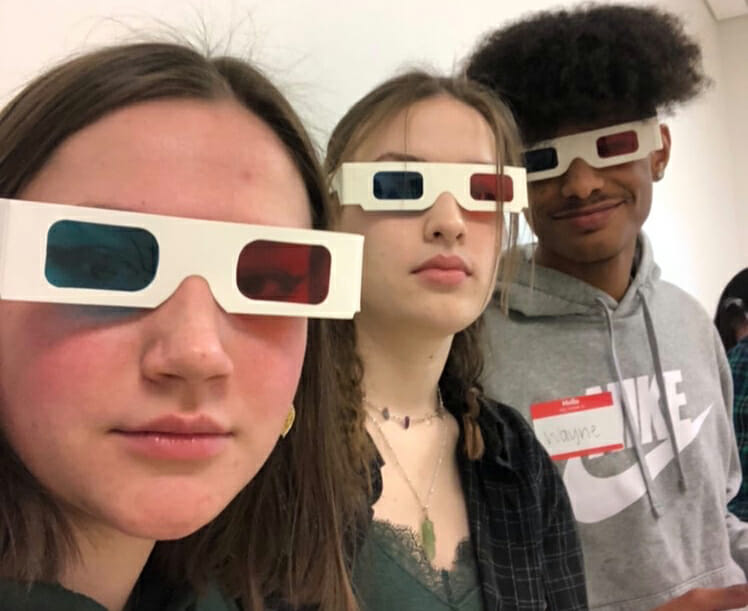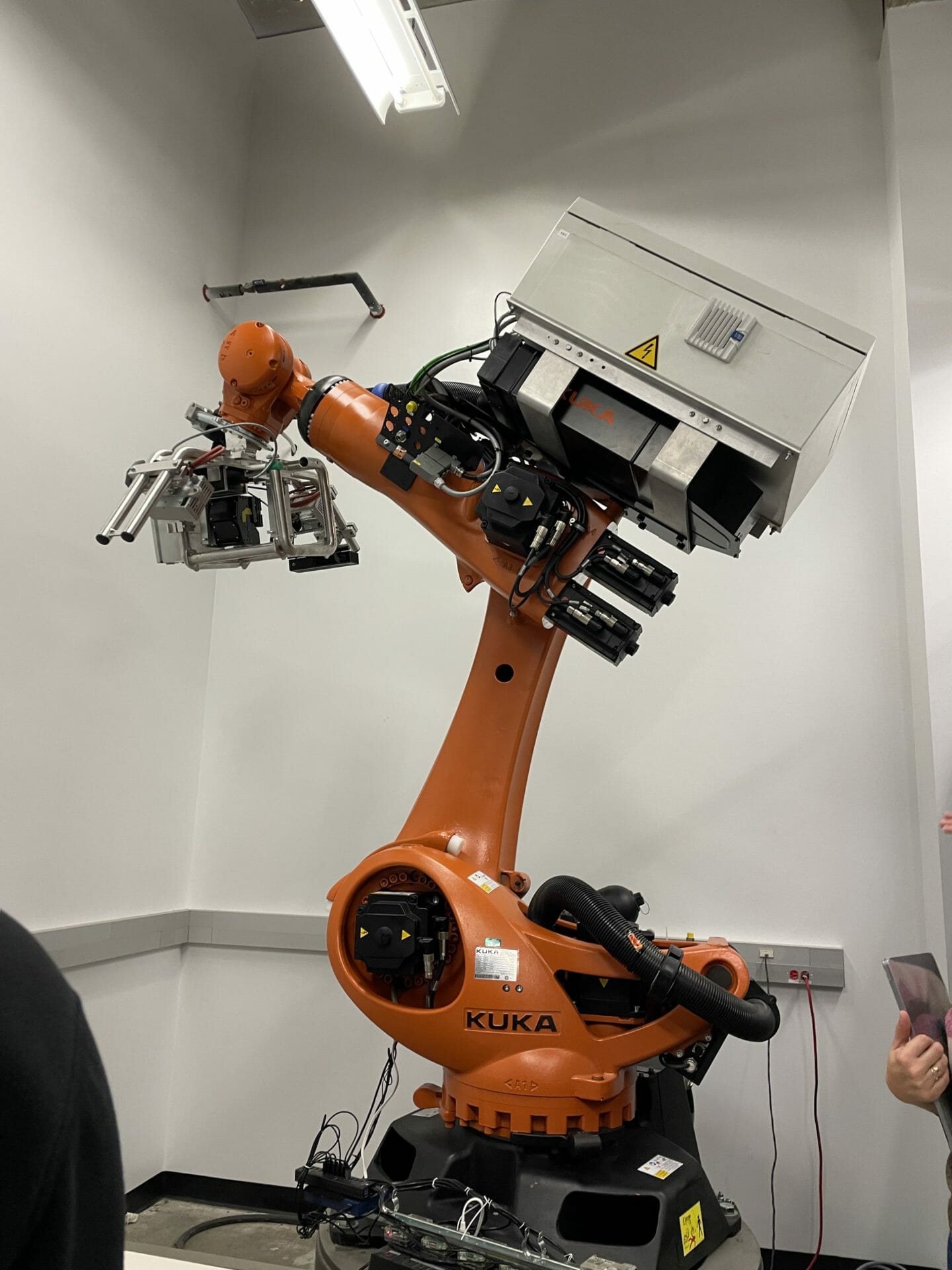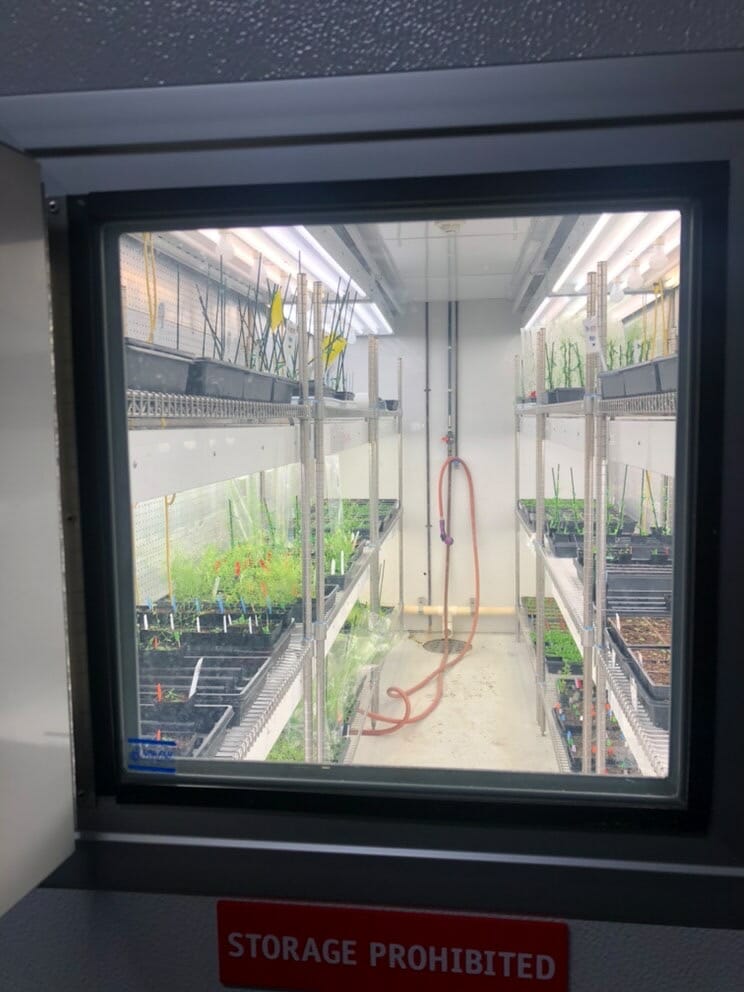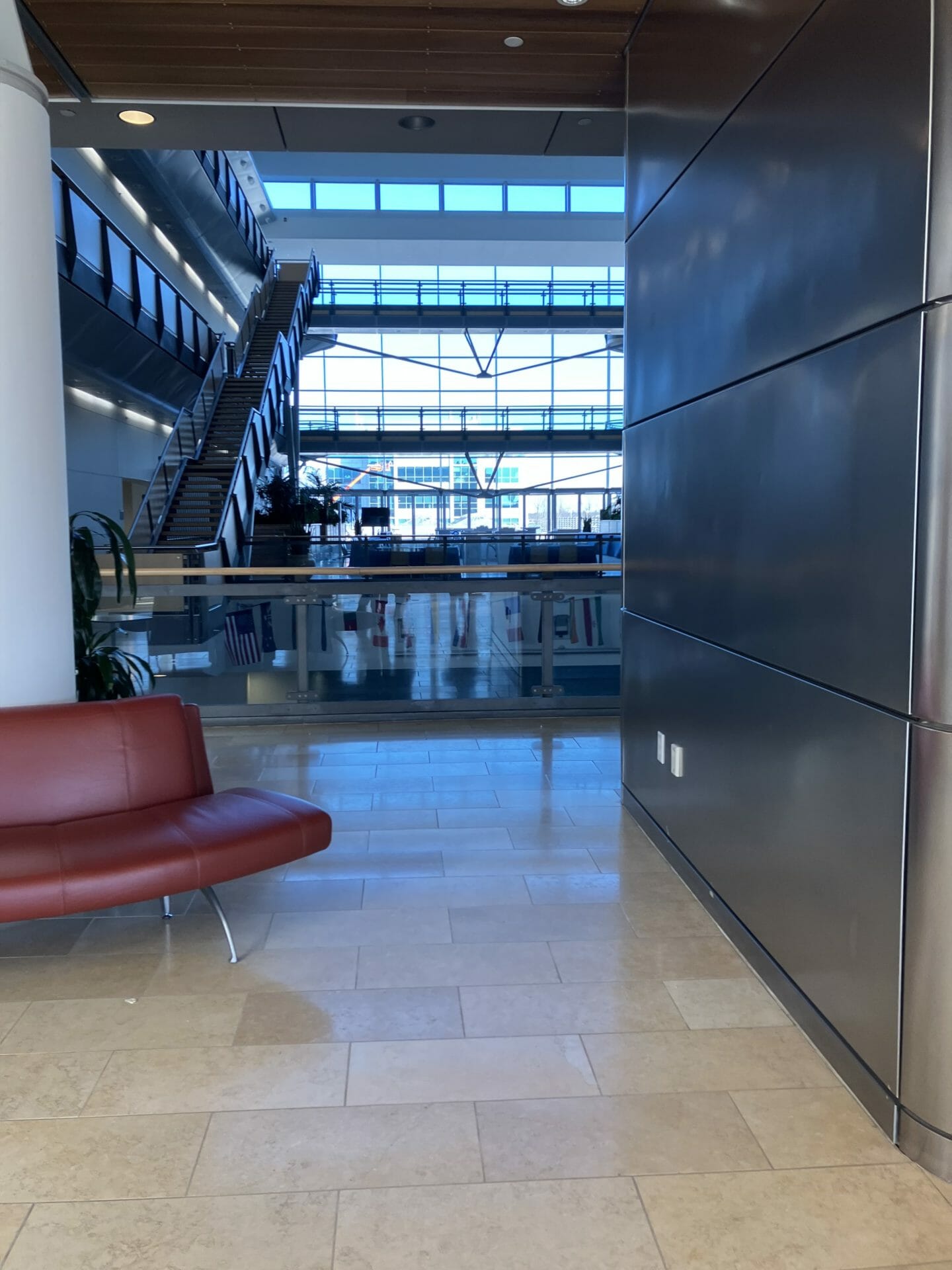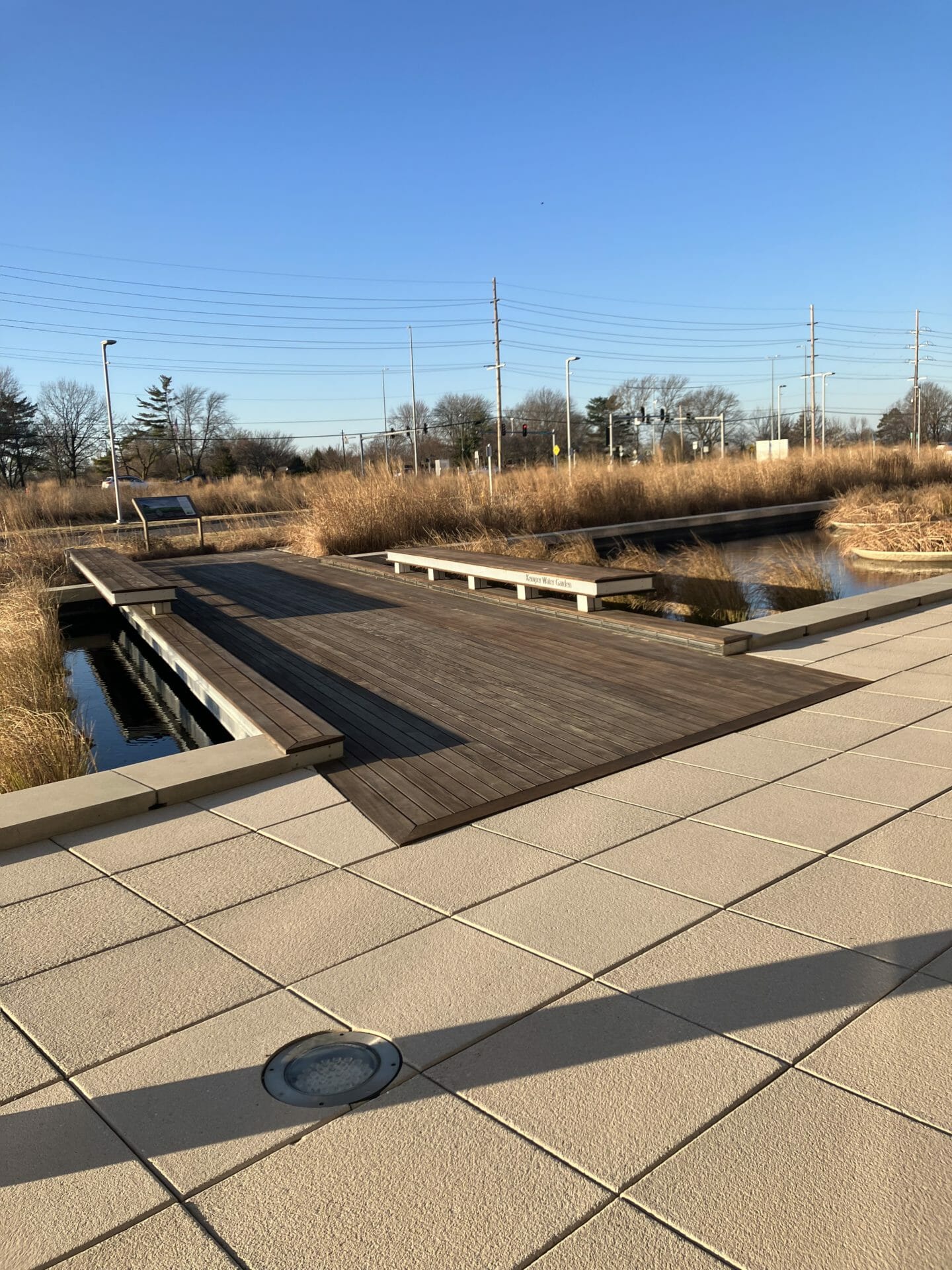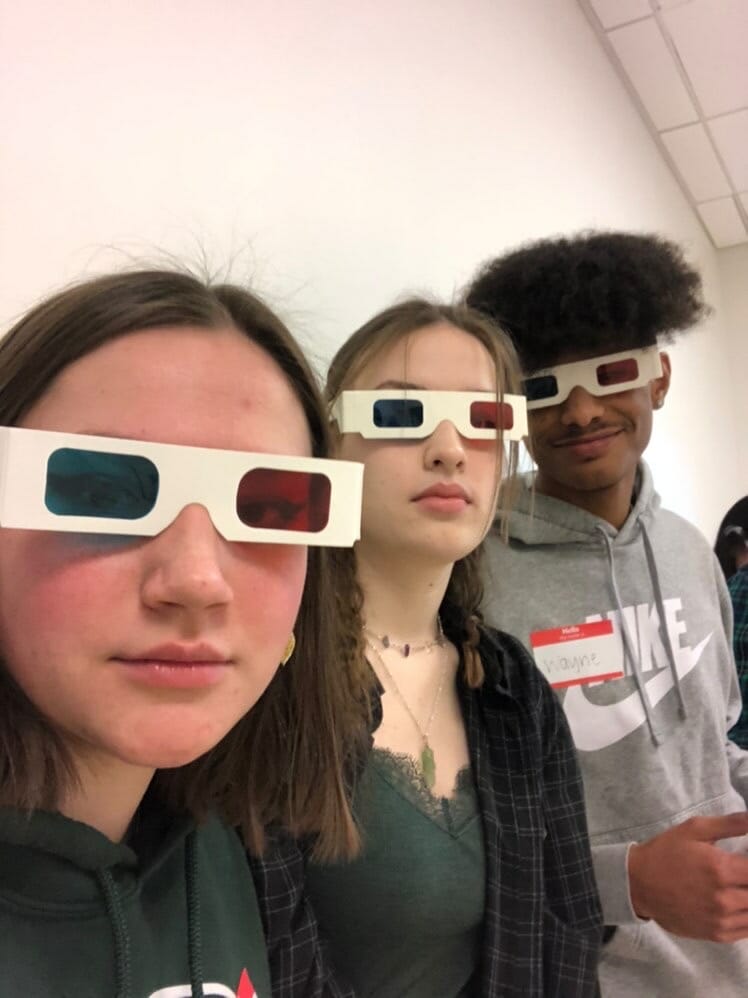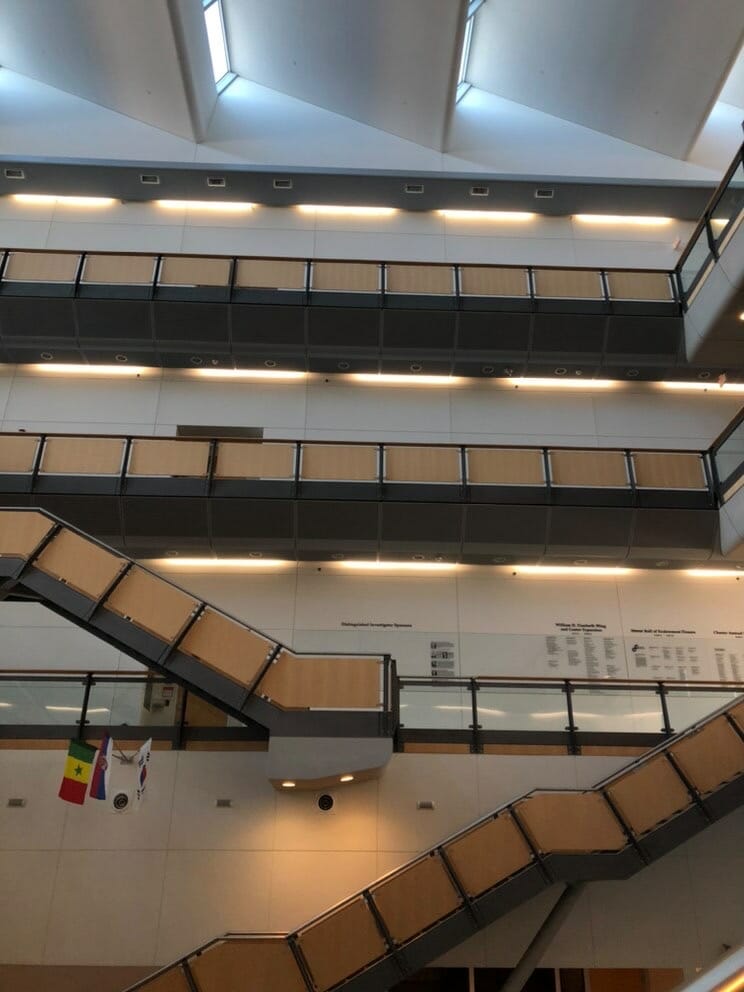What in the world are genotypes and phenotypes? Upper School Science Teacher Laura Bradford‘s students enrolled in our Biological Design class were treated to a field trip to the Donald Danforth Plant Science Center to find out and learn more about the genetics of maize.
Bradford’s class has participated in many Authentic Research Experiences (AREs) at Danforth and launched into the Genotype to Phenotype program a couple of weeks ago. A genotype is the genetic constitution of an individual organism. A phenotype is the set of observable characteristics of a particular species resulting from the interaction of its genotype with the environment. The Genotype to Phenotype program focuses on the leaf angle in maize plants, which is a critical parameter in determining plant density (how many plants are grown per acre) and yield (ears of maize produced per acre.) Dr. Andrea Eveland is the Principal Investigator at Danforth, leading a team to identify genetic factors that regulate maize phenotype variation.
Students contribute to the research by growing, screening, and documenting hundreds of maize genotypes to gather molecular data that will help predict the leaf angle of an adult plant based on seedling data. First, they measure leaf angles manually and photograph the seedlings, then, using the program ImageJ, students calculate leaf angles, make comparisons between the data, and apply statistical tests.
On the visit to Danforth, students enjoyed a tour that included a visit to Dr. Malia Gehan‘s lab for a robot demonstration. Bradford said, “It doesn’t sound very exciting, but it’s interesting to learn how important leaf angle is in studying the architecture of plants and finding the most productive photosynthesis angle for leaves balanced against the closest planting you can do in a field to get maximum production per acre.”
Lauren Bell ’23 found the field trip fun and enlightening. She said, “I thought visiting Danforth Plant Science Center was great fun, and was pleasantly surprised that so many female scientists were working there in major positions! As science tends to be a male-dominated field, it was refreshing to see. The Center was incredibly kind to us, allowing us to see their incredibly expensive robotic equipment as well as their active research greenhouses. Our close-knit class enjoyed connecting our work with high-tech research being done so close by.”
Liz Schmidt ’23 enjoyed seeing the center and the interactional elements of the tour. “The field trip to the Danforth Plant Science Center was so much fun! The tour was amazing. We went through many parts of the stunning building and experienced some fun interactional parts. We got to look through these tiny openings to see what plants they were growing, and one of the most fun parts was looking at 3D images using 3D glasses. I was surprised to see a conveyor belt assist plant travel across a room. That was super cool. One thing I found interesting was how they have special technology that can x-ray a plant, so they don’t have to dissect or harm the plant,” she said.
Many thanks to the Donald Danforth Plant Science Center for helping to train our young scientists in genetics related to agriculture, food security, and bioinformatics!
